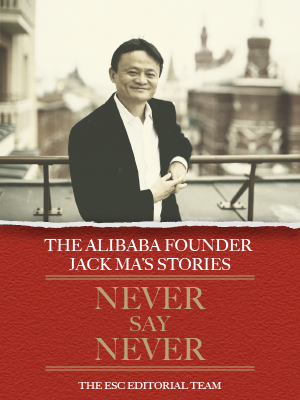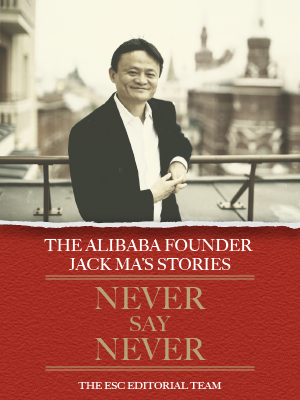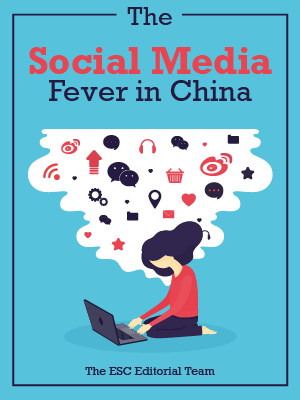Ecommercestrategychina.com uses cookies and other technologies to provide you a better browsing experience. You can get more information regarding the use of cookies, or decline it whenever by clicking Privacy Policy. By using this site or clicking “Okay”, you give us the consent to the use of cookies.
OKAY
On September 19th 2014, Alibaba was listed on the Nasdaq, financing up to $24 billion. After going public, Alibaba founder Jack Ma became China's richest man and Alibaba became China's largest Internet company. Because of this stock market success, Jack Ma was put on a pedestal. It’s almost impossible for startup founders to be grown-up and become mature until they experience and overcome all kinds of difficulties, Jack Ma is no exception.
Jack Ma is not perfect and has made many mistakes, some of which were fatal. At the 2013 award ceremony, Ma said that if he had to write a book some time in the future, he would write "Alibaba's 1001 mistakes." He also said that Alibaba actually made more than 1001 mistakes and many mistakes were not even dealt with because there was not enough time. So what were the ten big mistakes that Jack Ma actually committed?
1. Eager for quick success and being over-optimistic, Jack Ma moved the headquarter to Shanghai but had to come back because he failed.
Time: 1999
Reasons: Blind pursuit of high-end office and environment, drifted away from targeted customers
Outcome: Relocated the headquarters back to Hangzhou and never left there since then
In 1999, Jack Ma started his business at his 150 square-metre small apartment. After getting financing, he began to float in the air, moving the headquarters of the company to the United States and relocating the Chinese headquarter to Shanghai. Then he relocated China headquarter back to Hangzhou. A financial commentator said that this was the first error made by Jack Ma.
Looking back, Shanghai is a place where large state-owned enterprises and foreign companies are located, but at that time Alibaba's service targeted mostly small and medium businesses. By comparison, Hangzhou had a large number of manufacturers engaged in foreign trade, and these are the ones who really have e-commerce needs.
Comments: Young Jack Ma engaged in the blind pursuit of high-end environment to make the company look better but drifted away from their users; this is one thing all the startups, in particular, should pay attention to. It was reported that Zhejiang had been the province where Alibaba’s highest income came from initially, later to be surpassed by Guangdong later.
2. Expanding too fast led to high operating costs.
Time: 2001-2003
Reason: Increased financial resources lead to loss of control
Outcome: The company engaged in major layoffs and pay cuts.
Back in 1999 when Alibaba was established, it reached a net profit of RMB2.87 million. Then it received the funding of $5 million from Goldman Sachs and $20 million from Softbank respectively. This increase of funds upset Jack Ma’s initial plan, and Alibaba stepped into chaos.
In 2000, Alibaba expanded crazily in overseas markets and the operating costs stayed at a high level for a long time. Alibaba spent a lot of money every month on marketing and commercials in Hong Kong, the United States, Europe and South Korea but gained no income. In January 2001 Alibaba's Bank account balance showed less than $10 million.
Alibaba soon convened the historic meeting, in which the COO Savio, an outsider from GE, made the decision to cut the U.S. team from 40 people to 3 in one day and close offices in Hong Kong, Beijing and Shanghai one after another. For the rest of the staff, salary was cut in half but their stocks at hand were doubled. Three months later, Alibaba's monthly operating costs were reduced from $200 million to only $500 thousand, and Alibaba was able to survive.
3. Jack Ma blindly believed in outsiders who all failed in the end.
Time: 2001
Reasons: Too young
Outcome: All the outsiders left and 7 out of 18 leaders grown internally are still here.
In 1999, 18 people who gave up high-paying jobs in Beijing and followed Jack Ma back to start a business in Hangzhou. Ma then told them not to think of becoming part of the executive team if they wish to continue working in the company, he reported in a speech two years later. They could only become middle managers as the executive team must come from the outside. Then Alibaba predominantly introduced professional managers.
Jack Ma admitted that he had made a mistake when was reflecting on the development of that period. Fifteen years later, when Alibaba became a listed company in the United States, there were still seven out of the 18 partners working for Alibaba from the time when the company first started, such as Peng Lei, Kerry, Xie Shihuang, Wu Yongming who all hold high positions in the company. The 11 who had left also held important positions. By contrast, those “outside soldiers" who were invited at the time had long been gone.
Jack Ma not only underestimated the group but also underestimated himself. Ma said he really did not expect that they would have become the company they are now ten years ago.
Comments: Whether a high-growth company should introduce professional managers, and what roles professional managers should play in the entrepreneurial team are really difficult questions. Jack Ma also had to experience these problems, but he also got the ideal "startup manager" like Zeng Ming.
4. Yahoo China shut down, and lost control of Alibaba.
Time: 2005
Reason: Jerry Yang stepped down
Outcome: Buying Alibaba shares back from Yahoo
Yahoo founder Jerry Yang and Jack Ma met at a golf course in the United States one day in 2005. Jack Ma won the game and left a deep impression on Jerry Yang. Yang then said to Ma that let’s sit down and work out a deal when we get back. Jerry wanted Yahoo China to be as powerful as Yahoo in the United States at that time, unfortunately though, the situation in China was diferent.
It took only three months from the negotiation to the signing of the agreement. Alibaba acquired all of the assets of Yahoo China, while receiving Yahoo's $1 billion investment, which in turn gave Yahoo a 35% equity stake in Alibaba.
Ma was ambitious. He invited a famous director to shoot commercials for Yahoo China, but Yahoo China later became neither a portal nor a search engine, Jack Ma achieved nothing, losing the strategic opportunity of developing a search engine for small and medium enterprises. The search engine that Amoy pushed later is actually equivalent to Alibaba's internal search engine. This year, Alibaba gave the search business as a whole package to UC.com, which later morphed into Shenma search.
In 2007, Alibaba Hong Kong listed IPO documents which disclosed that, starting in 2010, Yahoo would increase its voice in Alibaba’s board of directors, which may lead to Jack Ma being expelled from the board of directors. Later the controversy that Jack Ma had transferred Alipay assets to the management team was also believed to be the result of giving too many Alibaba shares to Yahoo when acquiring Yahoo China.

Please Login to add comments.

$9.99 $19.98

$9.99 $19.98